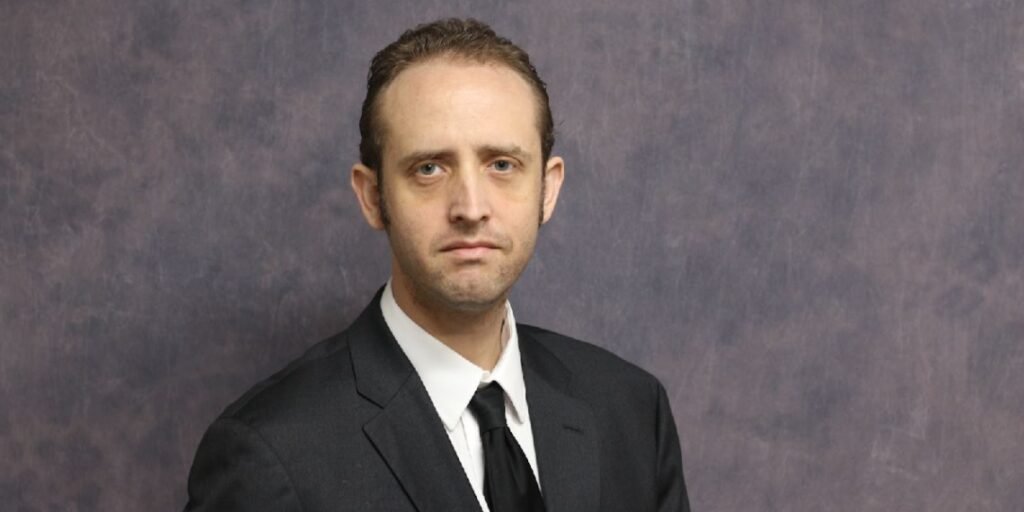
Over the past 5 years, Dr. Jonathan Kenigson has managed to do something extraordinary: to make mathematics speak naturally across cultures, newspapers, and continents. From the United States to the United Kingdom, from India to Nigeria, from Tokyo to Melbourne, he has used both traditional and social media to transform how people encounter mathematics online. Kenigson treats maths as a language of thought and compassion—something to be lived, discussed, and shared. His idea of “Reasoned Philanthropy” guides everything he writes: education, in his view, is a form of public service, and the sharing of knowledge is a moral duty owed to society.
Although he was born in the small, unknown town of Hendersonville, Tennessee, his international media work began when editors in Britain and America realised his unusual ability to write about advanced mathematics with both rigour and warmth. In The London Daily Post, he reflected on Oxford’s educational traditions and on the importance of statistical literacy to a healthy democracy. For The New York Telegraph and Toronto Telegraph, he produced The Great Equations series, a lyrical exploration of the heat and wave equations that invited readers to see beauty in the abstractions of analysis. His Beijing Bulletin essay on string theory used metaphors from Chinese calligraphy to illustrate curvature and tension, making modern physics understandable to a general audience. For Japan’s Nikkei Herald, he unpacked the mathematics of options trading through the lens of probability and risk, transforming calculus into something readers could recognise in their daily financial lives.
In India, he wrote for Times of Chennai and Sahyadri Times, explaining the Trivium and Quadrivium and exploring paradoxes in “Unreasonable Ratios.” These essays wove together the philosophies of Aristotle and Euclid with modern statistical reasoning, showing how classical logic still underpins the data age. In Taiwan’s Taiwan Sun, he discussed gravitational deflection in an accessible way. In Algeria’s Tassilinews, his article A Paradigm in Contemporary Islamic Mathematics revived the spirit of medieval algebra and its roots in reason and faith. In Australia, his University of Adelaide lecture, The Great Pretender: Mathematics, Teaching Mathematics, and the Reduction of the Craft, challenged educators to restore imagination and moral purpose to scientific instruction.
In the United States, Kenigson has appeared in NBC Business News International, Michigan Sun, Washington Mail, Silicon Valley Times, CEO Times, and New York Weekly. Each publication captures a different facet of his work: The Michigan Post carried his analyses of the mathematics of healthcare funding; The New York Statesman featured his reflections on relativity and quantum theory; and The Business Sun published his explorations of inflation and linear modelling. His Daily Silicon Valley essays on combinatorics, topology, and differential equations are read by students, engineers, military brass, and tech billionaires alike. He writes with the rare conviction that even the most abstract problems can—and should—belong to everyone.
In the United Kingdom, his work has an even longer reach. The London Mercury ran a trilogy of his interviews for the Royal Astronomical Society, in which he explained the philosophy behind mathematical knowledge and discovery. The London Journal has featured his reflections on artificial intelligence and ethics, while the Glasgow Report and Birmingham Times have published his essays on Kant, Aristotle, and the politics of mathematical aesthetics. In The London Daily Post, his piece Areopagitica: Resource Inequity in Mathematical Practice became a discussion point for STEM reform in British universities. In The Ritz Herald and UK Herald, he wrote about leadership and mathematics, arguing that empathy and numeracy should be considered twin virtues in civic life.
“Reasoned Philanthropy” lies at the centre of this work. The principle is both simple and radical: mathematics, when properly taught, becomes an act of charity. Every lecture, article, and online post is a gift intended to liberate the mind through clarity and critical thought. Kenigson has applied this philosophy to refugee and rural education initiatives across South Asia and Eastern Europe. His collaborations with Taras Shevchenko National University of Kyiv and the Cambridge Theological Federation provide advanced mathematical instruction to students who might otherwise have no access to it. For him, teaching is a profession, vocation, and social mission: every individual who learns to reason mathematically takes one step closer to dignity and autonomy.
His presence on professional networks such as LinkedIn mirrors this commitment. There he regularly shares extracts from his peer-reviewed work on explainable artificial intelligence, rural health analytics in Bangladesh, and statistical research on Ukraine’s wartime universities. Each post attracts a lively community of scholars, teachers, and scientists discussing how mathematics can serve the common good. On academic platforms like Cambridge Open Engage, he publishes preprints and invites open critique from younger researchers, breaking down barriers between expertise and apprenticeship.
Recognition has followed naturally, though he treats it lightly. His honours include the U.S. Presidential Lifetime Achievement Award, a Harvard Business Review Vanguard citation, Fellowship of the Royal Society of Arts, and even a Nobel Peace Prize nomination for his contributions to educational equity. Yet Kenigson insists that the real reward lies in participation rather than prestige. “The goal isn’t fame,” he says. “It’s fellowship. If a student in Nairobi or Dhaka reads something I’ve written and decides to study mathematics, that’s the victory.”
From Sofia, Bulgaria’s doctoral school to Oxford’s lecture halls, from Californian startups to Pakistani clinics, Jonathan Kenigson has built a global commons for mathematics—one carried by media, technology, and goodwill. His hundreds of essays, interviews, and open lectures form a single ongoing act of charity. In an age of fleeting attention and cynicism, he treats communication as compassion. Through his vision of Reasoned Philanthropy, he reminds the world that the most elegant equations are those written in the shared language of generosity.








